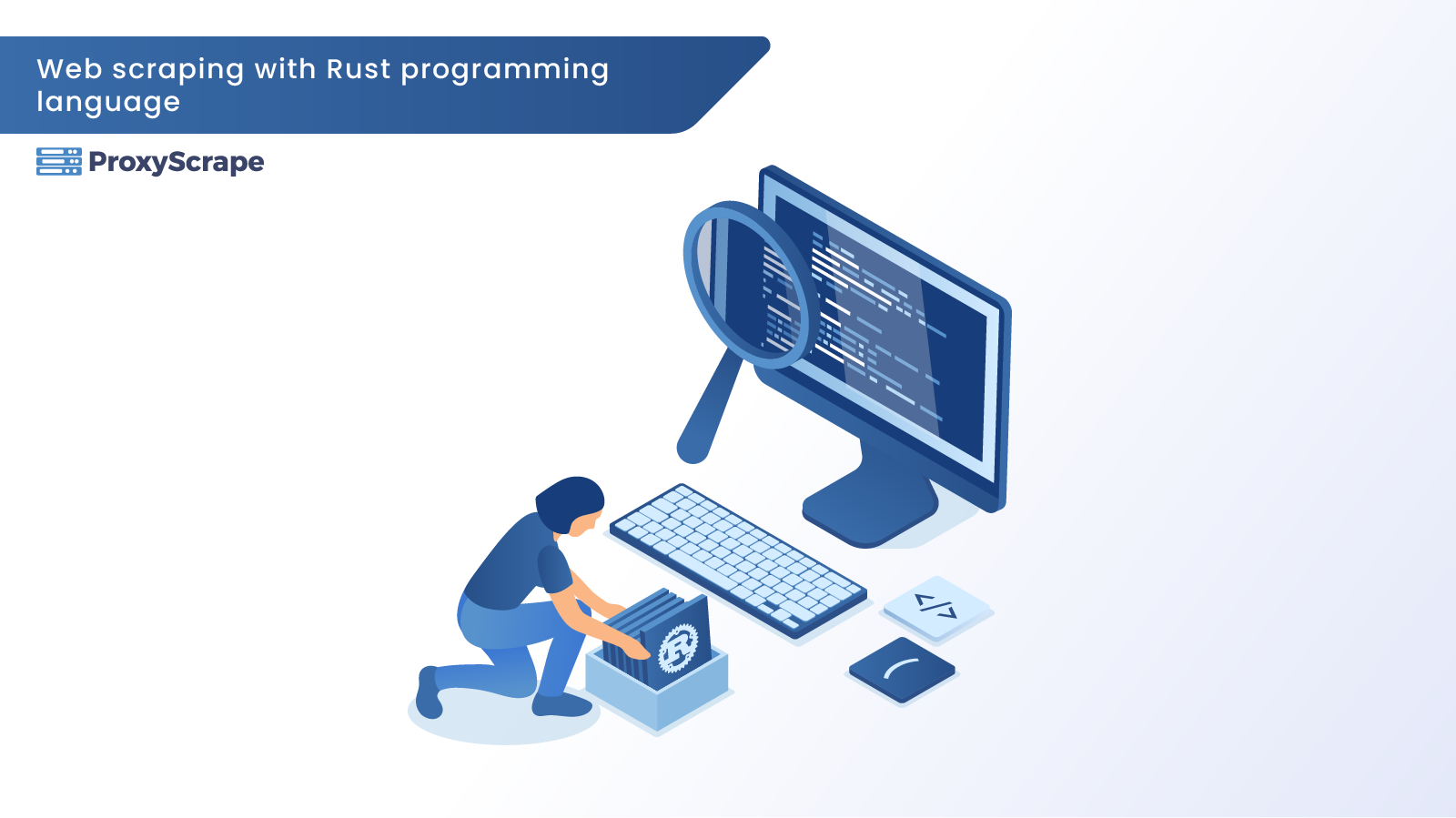
In today's digital age, information is power. Businesses, researchers, and developers rely on data to make informed decisions. But how do you efficiently access the vast amounts of information available on the internet? Enter web scraping. Web scraping is the process of automatically extracting data from websites using software. This technique is invaluable for gathering data at scale, whether for market analysis, research, or SEO optimization.
In this blog post, we'll guide you through setting up Rust for web scraping. By the end, you'll understand why Rust is a robust choice for web scraping and how to leverage it for your projects.
Why Rust for Web Scraping?
When it comes to web scraping, the choice of programming language can make a significant difference in performance and efficiency. Rust, known for its speed and safety, offers several advantages for web scraping.
Performance
Rust is designed for high performance, making it an excellent choice for tasks that require speed and efficiency. Unlike interpreted languages, Rust is compiled to machine code, allowing it to execute tasks faster. This is particularly beneficial for web scraping, where processing large volumes of data quickly is essential.
Safety and Reliability
One of Rust's standout features is its focus on safety. Rust's ownership system ensures memory safety without needing a garbage collector, reducing the chances of runtime errors. This makes Rust a reliable choice for web scraping, where stability is crucial.
Concurrency
Rust excels in handling concurrent tasks, thanks to its safe concurrency model. Web scraping often involves multiple tasks running simultaneously, such as fetching data from different web pages. Rust's concurrency features allow developers to manage these tasks efficiently, improving overall performance.
Getting Started with Rust
Ready to dive into web scraping with Rust? Whether you're using Linux, macOS, or a Unix-like environment on Windows, let’s start with setting up your Rust environment and creating a simple web scraper.
Installing Rust
First, you'll need to install Rust. The easiest way is to use `rustup`, the Rust toolchain installer. Open your terminal and run:
curl --proto '=https' --tlsv1.2 -sSf https://sh.rustup.rs | sh
Follow the on-screen instructions to complete the installation.
Setting Up a New Project
Once Rust is installed, you can create a new project. In your terminal, run:
cargo new web_scraper
cd web_scraper
This will create a new directory with the basic structure of a Rust project.
Writing Your First Web Scraper
Now, let's write a simple web scraper. Add the `reqwest` and `scraper` crates to your `Cargo.toml` file:
[dependencies]
reqwest = { version = "0.11", features = ["blocking"] }
scraper = "0.12"
```
Next, open the `src/main.rs` file and add the following code:
```
use reqwest::blocking::get;
use scraper::{Html, Selector};
fn main() {
let url = "https://books.toscrape.com/catalogue/page-2.html";
let body = get(url).unwrap().text().unwrap();
let document = Html::parse_document(&body);
let selector = Selector::parse("h1").unwrap();
for element in document.select(&selector) {
println!("{}", element.inner_html());
}
}
This code fetches the HTML content of the specified URL and prints the text of all `h1` elements.
Best Practices for Web Scraping with Rust
Use Robust Libraries:
- Choose well-maintained libraries like reqwest for HTTP requests and scraper for HTML parsing.
use reqwest::blocking::Client;
let client = Client::new();
Use Headless Browsers for Dynamic Content:
- For JavaScript-heavy pages, use headless browsers like headless_chrome.
use headless_chrome::Browser;
let browser = Browser::default()?;
let tab = browser.wait_for_initial_tab()?;
tab.navigate_to("http://example.com")?
.wait_until_navigated()?;
let html = tab.get_content()?;
Parse HTML Efficiently:
- Utilize the scraper crate for parsing HTML content.
use scraper::{Html, Selector};
let document = Html::parse_document(&response);
let selector = Selector::parse("a").unwrap();
for element in document.select(&selector) {
println!("{}", element.value().attr("href").unwrap_or(""));
}
Integrate Proxy:
- Utilize proxies for request distribution to prevent IP bans. Below is an illustration using reqwest::Proxy:
[dependencies]
reqwest = { version = "0.11", features = ["blocking", "socks"] }
scraper = "0.12"
tokio = { version = "1", features = ["full"] }
let proxy = reqwest::Proxy::http("rp.proxyscrape.com:6060")?;
Challenges and Limitations in Web Scraping with Rust
Limited Ecosystem for Web Scraping:
- Fewer web scraping libraries and tools compared to languages like Python.
- Libraries like reqwest and scraper are powerful but not as mature or feature-rich as Python’s requests and BeautifulSoup
Handling JavaScript-Heavy Websites:
- Limited native support for rendering and interacting with JavaScript-heavy websites.
- Headless browser libraries like headless_chrome are available but less mature and more complex to use compared to Selenium in Python.
Less Mature Data Handling Libraries:
- Rust’s data handling and manipulation libraries are less mature and feature-rich compared to those in Python, making data processing post-scraping more cumbersome.
Conclusion
Web scraping is a powerful tool for data acquisition, and Rust is emerging as a strong contender for this task. With its performance, safety features, and concurrency capabilities, Rust offers numerous benefits for web scraping. By following best practices and leveraging Rust's unique features, developers can build efficient and reliable web scrapers.
Whether you're an SEO professional, data analyst, or tech enthusiast, Rust provides the tools you need to streamline your web scraping projects. Ready to get started? Begin by setting up your Rust environment and exploring the possibilities of this powerful language.
Happy scraping!